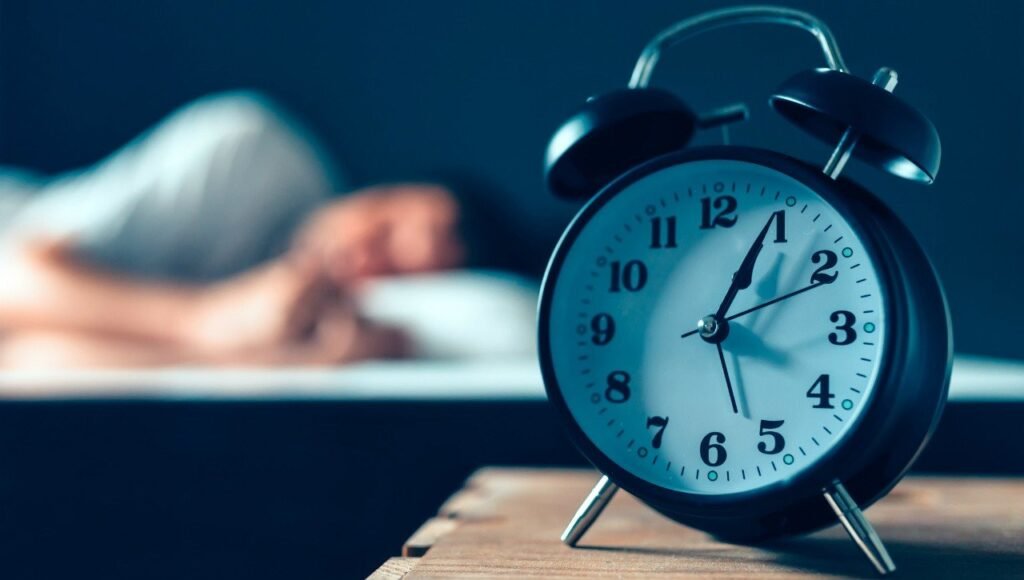When you can hardly manage a restroom trip due to trembling quadriceps, you undoubtedly know it’s time to relax and maybe the signs your body needs rest. Though soreness—caused by minute breaks in your muscle fibers from the strain of exercise (and your body’s reaction to heal that damage)—is not the only indication that your body—and mind—may need a day off.
Overcoming discomfort may make you feel like a badass. However, it isn’t advancing your development. Your body can never mend damaged tissues and refuel energy reserves if you neglect rest and recuperation. This physical stress affects your body’s ability to function at its best.
Additionally, you will find it more difficult to recover between exercises if you are simultaneously under mental and emotional stress (due to life), which will result in more inadequacies and breakdowns rather than improvements.
Not only is it self-serving to know when to prioritize healing above your scheduled exercise, but it’s also (luckily!) rather easy. As a machine, your body will alert you when it needs to slow down. Indeed, pain is a major concern. But there are several indicators. Keep an eye out for these less obvious signs that you need a vacation.
How Your Body Tells You Need Rest

1. Dark Circles
The skin around your eyes is the thinnest and most delicate on your entire body, which makes it highly sensitive to the effects of poor sleep. When you don’t get enough rest, your skin cells are unable to regenerate and repair themselves as effectively. This lack of proper healing becomes noticeable beneath the eyes, where dark circles often form as one of the signs your body needs rest.
Dark circles occur when blood accumulates behind the eyes, a result of poor circulation that is exacerbated by inadequate rest. These dark shadows can give the face a tired and aged appearance, signaling that your body is not getting the restorative sleep it needs.
Additionally, sleep deprivation can impair the skin’s natural barrier function, leaving it more vulnerable to damage. This can lead to the development of fine lines and wrinkles, particularly around the eyes, commonly referred to as crow’s feet.
These signs of aging are often more pronounced when your body isn’t able to regenerate and repair the skin as it should during the sleep cycle. If the skin around your eyes appears slack, pale, or thinner, it’s a clear sign that poor sleep is impacting your skin’s health and elasticity.
2. Fatigue
Fatigue is much more than just a simple sense of weariness or the signs of burnout you feel before bed. It’s a deep, persistent exhaustion that doesn’t go away with a good night’s sleep or after a day of rest. Unlike regular sleepiness, which typically only affects you in the evening or after a long day, fatigue can be a constant presence that interferes with your daily activities.
You may feel drained and low on energy throughout the day, even if you haven’t exerted yourself significantly. This type of fatigue can make it difficult to focus on tasks, stay motivated, or even carry out simple daily routines. It’s your body’s way of signaling that it is not receiving enough rest or recovery time.
If you find it hard to stay alert and energized during your waking hours, it’s a strong indication that you may need to prioritize a more consistent and restorative sleep schedule to improve your overall well-being.
3. Muscle Aches
Inexplicable aches and pains can often be linked to a lack of proper rest. During sleep, your body undergoes essential repair processes, including healing muscles, tissues, and cells. For example, the muscles that would typically repair themselves overnight may remain fatigued, sore, or strained, making it difficult to shake off lingering pain.
Moreover, insufficient rest can contribute to higher levels of inflammation in the body. Chronic inflammation is a major contributor to various types of pain, including joint pain and headaches. Without adequate sleep, your body’s ability to manage inflammation becomes impaired, resulting in discomfort and an increased perception of pain.
Not only does a lack of rest make you more sensitive to pain, but it can also raise the risk of developing long-term chronic pain conditions. This makes it even more important to prioritize rest, as consistent sleep helps regulate the body’s inflammatory response and promotes healing. It is one of the signs your body needs rest.
4. Trouble In Sleeping
As a child, you may have been told you were “overtired” after staying up too late, and this phenomenon is quite real. Being overtired occurs when the body has been overstimulated for an extended period, preventing it from winding down properly. This can happen after excessive physical exertion, such as overtraining or intense exercise, or after mentally draining activities like long hours of studying or working.
This overstimulation causes a buildup of stress hormones like cortisol, which further disrupts your ability to unwind. The result is a paradoxical situation where the more tired you are, the harder it becomes to rest. This is why it’s so important to balance activity with relaxation, allowing the body the time it needs to recover before sleep.
5. Vision Changes
When you sleep, your body and brain enter a crucial recovery mode, where both physical and mental healing takes place. This includes the regeneration and repair of tissues, muscles, and even your eyes. During rest, your eyes produce tears that help to lubricate and protect the surface of the eye.
If you’re not getting enough sleep and experiencing one of the signs your body needs rest, this natural tear production can be disrupted, leading to dry, itchy, or bloodshot eyes. Without the proper amount of sleep, your eyes also become more fatigued and less effective at making quick adjustments, which can cause blurred vision.
This is because the muscles responsible for focusing your eyes are not fully rested and restored. Additionally, eye twitches may become more frequent when your eyes are overly tired, which can make them feel sore and more sensitive to light. These symptoms highlight how vital rest is not only for your brain but for the health of your eyes as well.
6. Memory Lapses
Your brain requires rest to properly store and process the events of each day. Sleep plays a crucial role in memory consolidation, which is the process where your brain organizes and strengthens neural connections that help you retain information. Without sufficient sleep, your brain struggles to store and organize new information effectively, leading to forgetfulness or mental fog.
In addition to memory issues, sleep deprivation can cause you to experience microsleep—brief, unintentional episodes of sleep that last only a few seconds. During these moments, you may not even realize you’ve fallen asleep. If you want to stay alert and retain important information, getting enough sleep is essential for optimal brain function.
7. Weight Gain
As one of the signs of burnout, sleep deprivation can have a surprising impact on your appetite. When you’re sleep-deprived, your body often mistakes exhaustion for hunger, triggering cravings for energy-rich foods to help you stay awake.
As a result, you might reach for unhealthy snacks or processed foods that provide quick energy but offer little nutritional value. This can lead to poor dietary choices that ultimately worsen your overall health and exacerbate feelings of fatigue.
Sleep is also essential for regulating the hormones that control appetite, particularly ghrelin and leptin. Ghrelin, often referred to as the “hunger hormone,” increases when you’re sleep-deprived, which can intensify your feelings of hunger and lead to overeating.
This hormonal imbalance can create a cycle of overeating and poor food choices, further disrupting your ability to get restorative sleep. Prioritizing good sleep helps maintain hormonal balance, promoting healthier eating habits. That’s one of the signs your body needs rest.
8. Anxiety and Depression
Chronic insomnia, defined as trouble sleeping at least three nights a week for three months or longer, significantly increases your risk of developing mood disorders such as anxiety or depression. Lack of sleep disrupts the balance of chemicals in your brain, such as serotonin and dopamine, which are closely tied to mood regulation.
Over time, this disruption can make it much harder to manage stress and negative emotions, contributing to the development of anxiety or depressive symptoms. The constant state of exhaustion caused by insomnia exacerbates feelings of irritability, sadness, or fear, creating a vicious cycle.
Insomnia and mood disorders often feed into each other, making it difficult to break free from their grip. If you’re struggling with depression, anxiety, or irritability, it’s important to assess your sleep patterns.
Poor sleep can intensify these feelings, while addressing your insomnia can help alleviate some of the emotional burdens. Improving your sleep hygiene and seeking treatment for sleep issues can help disrupt this cycle and improve your mental well-being.
9. Experiencing More Illnesses
Sleep deprivation may be a contributing factor if you are experiencing an increased incidence of colds or other infectious disorders. For your immune system to work properly, you need to sleep.
According to previous research, those who habitually sleep less than seven hours are almost three times more likely to acquire a cold. Heart disease, high blood pressure, obesity, and stroke are among the major health issues that may arise as a result of sleep deprivation.
What Happens If You Don’t Get Enough Rest?
Rest is a fundamental aspect of human health, crucial for physical and mental well-being. Without adequate rest, your body and mind can face a variety of negative consequences and show the signs your body needs rest. Sleep, in particular, is essential for recovery, energy replenishment, and the maintenance of cognitive functions. If you consistently fail to get enough rest, it can lead to both short-term and long-term issues.
In the short term, sleep deprivation can affect your mood and cognitive abilities. Lack of sleep leads to irritability, difficulty concentrating, and memory problems. This makes it harder to focus on tasks, process information, or even perform daily activities. Additionally, the body struggles to regulate emotions, which can result in increased stress and anxiety.
Physical health also suffers when rest is insufficient. Sleep is vital for muscle recovery, immune function, and hormone regulation. Without proper sleep, the body may experience chronic fatigue, muscle aches, and a weakened immune system, making you more susceptible to illness. Over time, the risk of developing chronic conditions such as heart disease, diabetes, and obesity also increases due to the ongoing lack of recovery.
Furthermore, your brain relies on sleep to consolidate memories and organize information. Without enough rest, your ability to retain and recall information diminishes. You may also experience slower reaction times and poorer decision-making skills.
In conclusion, insufficient rest affects both the mind and body, leading to physical, mental, and emotional challenges. Prioritizing adequate sleep and rest is crucial for maintaining overall health, ensuring better productivity, and promoting long-term well-being. Ignoring the need for rest can have significant consequences that impact all aspects of life.
FAQ
Q: When do you realize you need to rest?
A: A few signs that you need rest may include (but are not limited to): You’re constantly fatigued. Persistent exhaustion, even when you’re sleeping enough, is a significant warning signal.
Q: Does slumber help your body grow?
A: While rest enables our bodies to rebuild muscle, intense exercise breaks it down. Your development may be hampered by persistent muscle breakdown if your schedule lacks growth days. Our bodies replenish their glycogen stores throughout growth days. Activity is powered by the chemical known as glycogen.
Q: How can you determine when your brain needs a vacation?
A: Having difficulty concentrating on things that you often do easily is one of the first indications that your brain needs a vacation. Your brain may be signaling to you it’s time to take a break if you find yourself reading the same passage over and over again or having trouble understanding basic ideas.












I am extremely inspired along with your writing talents and also with the structure on your weblog. Is that this a paid topic or did you customize it yourself? Anyway keep up the excellent quality writing, it’s rare to look a great blog like this one today!
Thank you so much! I truly appreciate it. The content and structure are customized by me—just a passion project. Glad you enjoyed it!